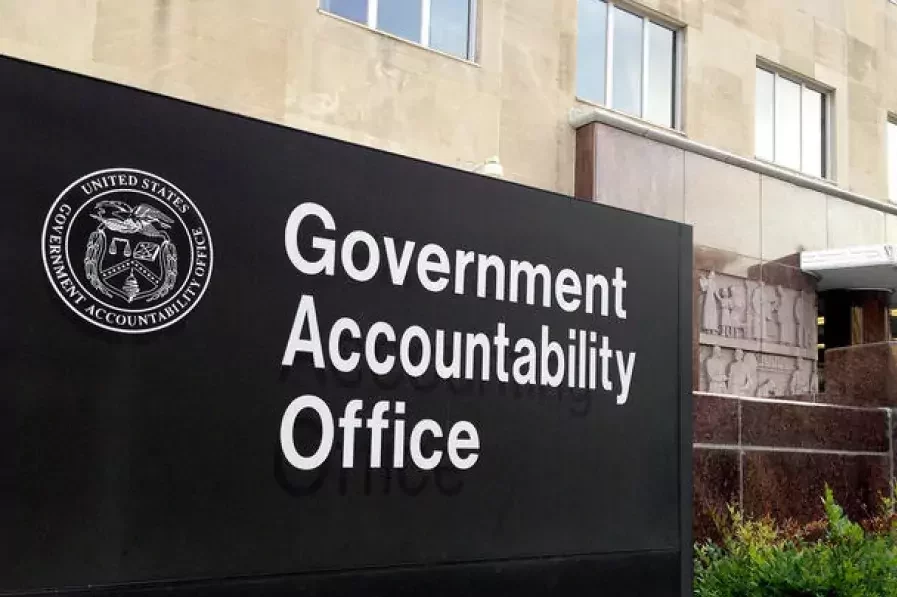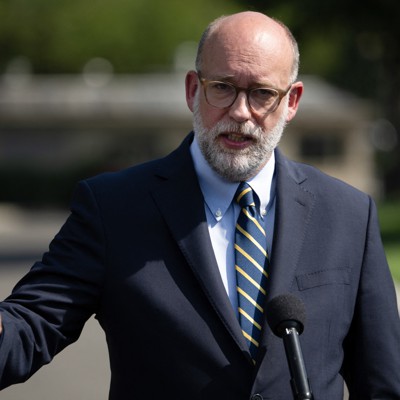House appropriators are seeking a nearly 50% cut to a government watchdog’s budget next year and to rein in its ongoing investigations of the Trump administration.
The legislative branch portion of the fiscal 2026 spending bill, released by the corresponding subcommittee of the House Appropriations Committee on Sunday, would cut the Government Accountability Office’s budget nearly in half. GAO under this proposal would get a $414 million budget next year — a nearly $400 million cut from current spending levels.
The spending bill in its current form would also prohibit GAO from using any of its funding to pursue civil action under the 1974 Impoundment Control Act “unless Congress has adopted a concurrent resolution authorizing the Comptroller General to bring such civil action.” The law prohibits the executive branch from withholding funds that Congress has already appropriated.
Daniel Schuman, executive director of the American Governance Institute, said the committee’s proposal is a “tremendous overreach by the appropriators into the operation of their independent watchdog,” and that cuts of this magnitude would force GAO to shed thousands of employees.
“GAO is one of the most powerful, longstanding, independent voices for following the law,” Schuman said. “When Congress becomes partisan, they have always been able to be the ones to be nonpartisan. They’re the umpires — they call balls and strikes, to say what things are, and this is an effort to kneecap them.”
GAO has found two cases where the Trump administration violated the Impoundment Control Act. Last week, the watchdog determined the Institute of Museum and Library Services (IMLS) violated that law, when it withheld funds that Congress appropriated for grants and contracts, meant to support libraries and museums across the country.
In May, GAO found the Transportation Department’s Federal Highway Administration (FHWA) also violated the federal spending law, when it didn’t award funding to states to set up electric-vehicle chargers, as authorized under the 2021 Infrastructure Investment and Jobs Act.
The watchdog also recently determined that recent changes impacting the Energy Department didn’t violate the Impoundment Control Act.
Comptroller General Gene Dodaro told lawmakers in April that GAO has 39 impoundment investigations pending. The Impoundment Control Act prevents the president from withholding agency spending that lawmakers approved without notifying Congress.
GAO, a nonpartisan oversight office within the legislative branch, has frustrated Trump administration executives with its oversight work.
OMB Director Russ Vought posted on X last month that GAO “played a role in the first-term impeachment hoax.” The watchdog office determined that the first Trump administration unlawfully withheld aid from Ukraine.
“They are going to call everything an impoundment because they want to grind our work to manage taxpayer dollars effectively to a halt. These are non-events with no consequence. Rearview mirror stuff,” Vought wrote.
Sen. Mike Lee (R-Utah), in response to Vought’s tweet, posted that “GAO has lost credibility as an independent body.”
The subcommittee will hold a markup of the bill at 6 p.m. Monday, and the full committee will hold another markup on Thursday.
Schuman said the current proposal would be the “final nail in the coffin” for the Impoundment Control Act, which Congress passed in response to the Nixon administration’s attempts to withhold appropriated funds.
“It’s the end of budgeting and appropriations as we know it,” he said.
In May, the Department of Government Efficiency reached out to GAO with plans to install a DOGE team at the watchdog agency. But GAO rejected that request, because it is part of the legislative branch, and not subject to the executive order that created DOGE.
For every dollar of GAO’s budget, the agency identifies at least $76 in financial benefits — including finding fraud, waste and abuse.
“This is not a money-saving effort. This is a power grab to transfer power to the executive branch,” Schuman said.
Acting Ranking Member of the House Oversight and Government Reform Committee Stephen Lynch (D-Mass.) called the plan a “self-inflicted wound” that would undermine GAO’s oversight work.
“Decimating the nonpartisan Government Accountability Office will make government less efficient, less accountable, and less responsive to the needs of the American people,” Lynch said in a statement.
The House Appropriations Committee wrote in a press release on Sunday that the spending bill would redirect GAO’s efforts to be “reflective of congressional priorities and cutting funding to curtail the agency’s self-directed, liberal initiatives.”
Subcommittee Chairman David Valadao (R-Calif.) said in a statement that “this legislation reins in unnecessary spending, focuses on core needs, and ensures that every dollar is justified and accountable to the American people.”
Committee Chairman Tom Cole (R-Okla.) said the spending bill “puts the American people first — in strengthening the institutions that represent them, protecting effective governance, and safeguarding taxpayer dollars.”
“It supports functions core to democracy and upholds the oversight and accountability duties of Congress.”
Comptroller General Gene Dodaro steps down from his 15-year term at GAO at the end of this year. The president nominates a new GAO leader, but under the 1980 GAO Act, that nominee is supposed to come from a shortlist of names chosen by congressional leaders.
Copyright
© 2025 Federal News Network. All rights reserved. This website is not intended for users located within the European Economic Area.



